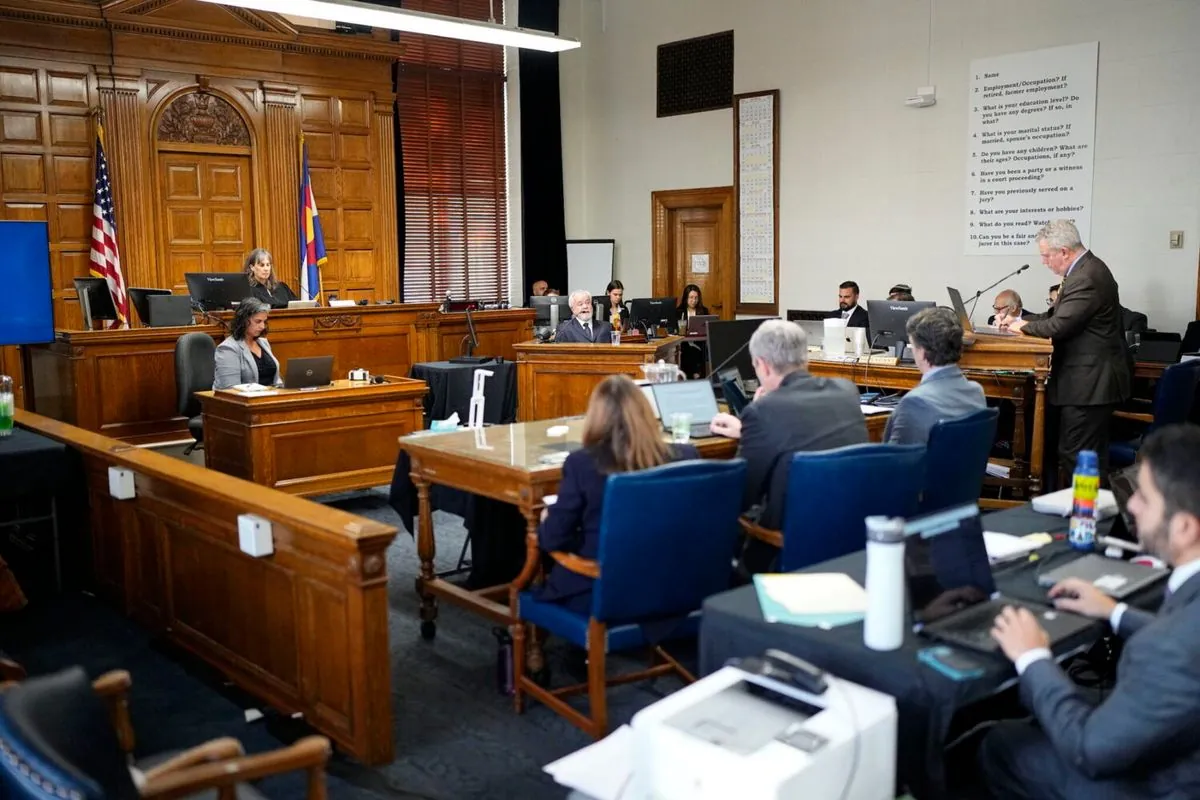The trial of Ahmad Alissa, accused of killing 10 people in a Boulder, Colorado supermarket in 2021, has brought to light complex issues surrounding mental health, cultural stigma, and gun access. On Tuesday, Moustafa Alissa, the defendant's father, provided testimony that offered insights into his son's mental state prior to the tragic event.
Moustafa Alissa recounted incidents that, in retrospect, indicated his son's deteriorating mental condition. He described an occasion when Ahmad claimed to see a non-existent person in his room, a behavior that aligns with symptoms of schizophrenia, a condition affecting approximately 1% of the global population.
"We thought he probably was just possessed by a spirit or something."
This statement reflects the cultural lens through which the family interpreted Ahmad's behavior, referencing the concept of djinn, or evil spirits, prevalent in Islamic and pre-Islamic Arabian mythology. Such cultural beliefs can significantly impact treatment-seeking behaviors, especially in communities where mental health stigma is strong.
The defense is pursuing a "not guilty by reason of insanity" plea, a legal strategy used in only about 1% of criminal cases in the U.S. This approach highlights the complex intersection of mental health and criminal justice. Following the shooting, Ahmad Alissa was diagnosed with severe schizophrenia, a condition that typically manifests in late adolescence or early adulthood.
It's worth noting that Ahmad was only deemed mentally competent to stand trial in 2023, after being administered the strongest available antipsychotic medication. This timeline underscores the challenges in treating severe mental illnesses, as these medications can take weeks or months to reach full effectiveness.
Prosecutors argue that despite his mental illness, Alissa was aware of his actions during the attack. They point to his planning and research as evidence of his understanding of right and wrong. This perspective aligns with the legal distinction between competency to stand trial and the insanity defense.
The case has reignited debates about gun control and mental health care access. Moustafa Alissa's admission that his son had access to firearms despite concerns about his mental state raises questions about gun ownership laws, which vary by state in the U.S.
As the trial continues, it serves as a stark reminder of the importance of early intervention in mental health cases and the need for culturally sensitive approaches to mental health care. The Boulder shooting, one of the deadliest mass shootings in Colorado since the 2012 Aurora theater incident, continues to impact discussions on public safety and mental health awareness.
